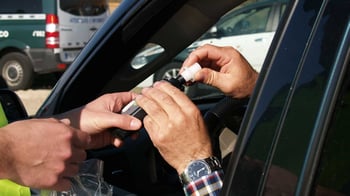If you’ve been stopped for suspicion of DUI or OUI, your experience with an officer may have been unlawful, as not every traffic stop is legal. There are certain things you’ll want to be mindful of during a traffic stop that could make or break your...
Read MoreGetting across the Canadian border is not as simple a process as many believe. Canadians are especially tough when it comes to DUI/OUI law, as it will often affect who they let into their nation.
In the past, foreigners traveling into Canada would...
Read MoreOverview
This doesn’t have to be a difficult process. If you’ve recently been charged with OUI or DUI in Massachusetts, asked to perform a field sobriety test, or you’re simply trying to educate yourself, you are already taking the first step to...
Read MoreA DUI charge can have a broad impact on your life. It affects your family, your friendships, and, inevitably, your professional life.
Read MoreThere’s harsher penalties in store for OUI offenders in Massachusetts. Legislators are cracking the whip on repeat offenders but even first time offenders should look to these changes as a major warning sign.
Read MorePolice officers use standardized field sobriety tests to establish probable cause that a driver is intoxicated. Non-standardized field sobriety tests have not been validated by any regulatory authority but are often still admissible in court.
Read MoreIn a DUI/OUI Child Endangerment case, the child’s well-being is always the first priority. OUI child endangerment comes with harsh penalties and could involve the Massachusetts Department of Children & Families.
Read MoreIf you are a registered nurse (RN) or a nursing student, a DUI can affect your livelihood. However, a DUI charge is not a conviction. Contact a DUI defense attorney as soon as possible to review your case if you've been charged with DUI.
Read MoreAlthough DUI is more difficult to prove in these circumstances, you can be charged with DUI after the fact if there is enough evidence against you.
Read MoreIf you were pulled over and arrested for OUI because you failed a breathalyzer test, that doesn’t mean you can’t win your OUI case at trial.
Read More









